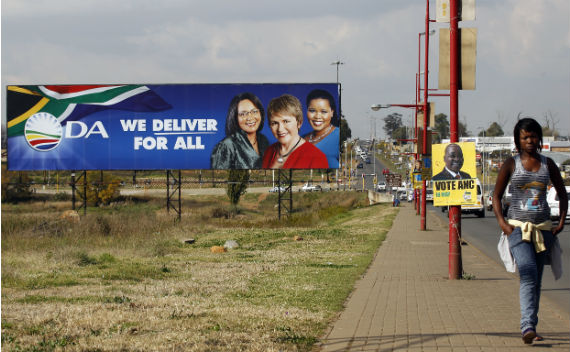Lindiwe Mazibuko and South Africa’s Democractic Alliance
More on:

The Democratic Alliance (DA) election of Lindiwe Mazibuko as new caucus leader signals a continued effort to expand its appeal beyond its traditional support base of whites, ’coloureds’ (mixed race) and ’Indians’ (persons of South Asian decent). The DA has been trying to enlarge its electoral appeal to blacks, and enjoyed some, if limited, success in the recent local government elections.
Mazibuko defeated a white farmer whose family has been associated with liberal causes for generations. With her election, four of the six DA parliamentary leaders are female.
DA party leader and premier of the Western Cape Helen Zille describes Mazibuko as a "star performer." She is certainly representative of the new, post-apartheid South Africa. She was born in 1980, and she was only fourteen when Nelson Mandela became the first president of a democratic, ’non-racial’ South Africa. The daughter of a bank manager, she attended private boarding schools and graduated from the prestigious University of Cape Town, once exclusively white, now racially diverse.
Reflecting her youth, she is only a first term parliamentarian. Since the beginning of her tenure, she has kept in touch with constituents by tweeting and blogging. However, the shallow nature of these communications—eating sushi and running into Coldplay’s frontman in Cape Town—hint that she might require more help managing her public profile, both in its professionalism and appeal to rural blacks.
Some DA politicians had spoken out against her campaign, endorsing Athol Trollip instead. Dene Smuts, a senior politician who serves as shadow minister of justice, remarked that the election is not a "transformation test" for the DA’s parliamentary caucus but also that "there are far stronger black MPs than [her]."
Black MP Masizole Mnqasela was more cautious, lamenting that if Mazibuko is given this post too soon, "we may destroy this very talented young woman" and that "she does not have a strong resonance with the black constituencies." Explaining his endorsement of Trollip, he said that while "we love Lindiwe to bits," the post would benefit from a more experienced politician. It is quite striking that Mnqasela praised Trollip as "more diverse person in terms of culture, language and political leadership" who speaks "Xhosa, Afrkaans and English fluently."
Others were less kind. According to the Telegraph (London), ANC Youth Leader and bad boy Julius Malema dismissed her as a "tea girl" to Helen Zille. Mazibuko replied, "He is not even an elected public representative. What is he offering us besides sensational headlines?"
Of course the DA’s future electoral success will depend in large part on how its policies resonate with the voters. But Mazibuko looks like a comer. Watch that space.
More on:
 Online Store
Online Store